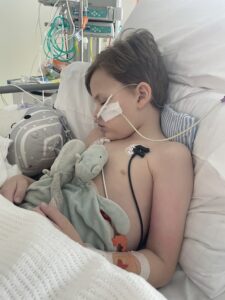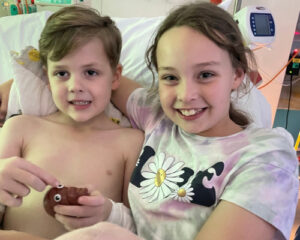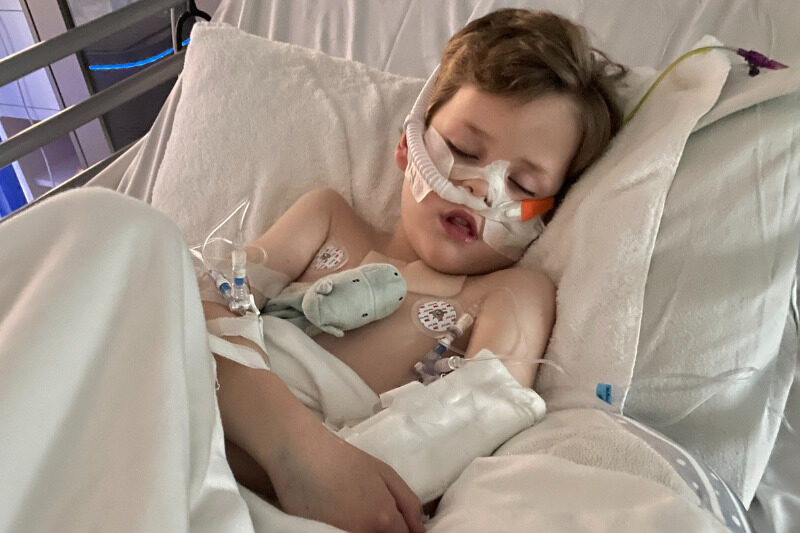Sepsis is a dangerous condition that can be difficult to diagnose and treat in children. The longer a child remains in septic shock, the greater the risk of death.
Families who have lost a child to sepsis are left to deal with the heartbreaking aftermath. In contrast, survivors and their families may face lifelong health impacts.
Jacob’s health suddenly turned for the worse at six years old. His family knew something was wrong; he’d lost his usual energy and was not eating. Jacob was eventually diagnosed with streptococcal, which led to sepsis and other complications.

Jacob’s mum, Dianna, said: “This was a very traumatic time for our family. We were all very emotional and worried about his condition. As his mum, I can easily say this was my life’s worst and most stressful time.”
Jacob has been on a long journey towards recovery. He has endured countless procedures and an extended hospital stay, including a gruelling fortnight in intensive care. Despite the challenges, he has remained caring and resilient and loves to laugh.

Supported by Telethon, the Child and Adolescent Health Service (CAHS) will launch a new care pathway called ‘Road to Recovery’ to support survivors and bereaved families with individualised and culturally appropriate care. This initiative is the first of its kind in Australia. The program will also aid the CAHS Paediatric Sepsis Program, which is committed to rapidly identifying and treating children with sepsis who present to hospital.
By working together, Telethon and the Child and Adolescent Health Service are committed to providing the best possible care and improving long-term health outcomes for children diagnosed with sepsis in Western Australia.
